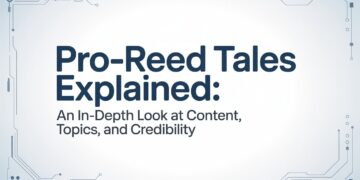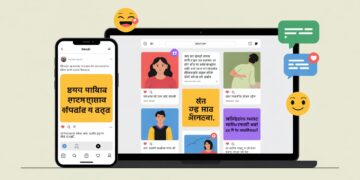In a world powered by rapid-fire notifications, constant updates, and algorithm-driven urgency, the concept of slowing down can feel foreign, even indulgent. But if we’re being honest, the real luxury today isn’t the latest gadget; it’s peace of mind. And in a society obsessed with doing more, conscious living is becoming an act of quiet resistance.
Modern life is busy by design. Between work deadlines, social commitments, digital distractions, and a steady stream of information, it’s easy to feel like we’re sprinting from one obligation to the next without truly being present. Yet, research and experience both show that living reactively—always rushing, always multitasking—leads to burnout, missed opportunities, and a feeling that life is passing us by.
Conscious living isn’t about doing less. It’s about doing the right things with greater intention. And believe it or not, the very tools that often distract us can also help us build that intentional life—if we use them wisely.
The Power of Organization in a Distracted World
One of the most underrated tools for conscious living is a well-organized digital calendar. While it may seem basic, syncing your life to a clear system of priorities can create space where chaos once ruled.
A thoughtfully structured calendar does more than remind you of meetings—it becomes a roadmap for your values. Block time for deep work, daily walks, meditation, or family dinners, and suddenly, those things stop being vague goals and start becoming actual commitments.
Being organized allows you to show up more fully—not just for work, but for yourself.
Automate the Routine, Make Space for the Meaningful
Technology can be your greatest ally when it comes to simplifying what’s repetitive so you can focus on what truly matters. Smart scheduling tools, AI-powered productivity apps, and integrated task managers can reduce mental clutter and help prioritize with clarity.
Need to be reminded to take a break? There’s an app for that. Want to align your schedule with your personal rituals, wellness practices, or spiritual beliefs? Calendar platforms now support custom reminders for everything from daily journaling to faith-based observances.
Some users even integrate cultural or religious calendars into their apps—whether it’s for national holidays or sacred months like Rabi al-Awwal to keep their digital lives aligned with their deeper rhythms and values.
Conscious Tech, Conscious Life
The old traditional way to drott down things is using memos or a notebook. Nowadays people log things into their work calendars or their mobile calendars. Either way, the goal isn’t to control every hour of your day, but to become more aware of how your time is being used. Ask yourself: are your days filled with activities that energize you or simply ones that keep you busy?
Technology gives us options. You can use it to distract yourself endlessly, or you can design your digital environment to support your wellbeing and purpose. Set up mindful notifications, install focus modes, or even use time-tracking apps to see where your attention is going. Once you start living more intentionally, you’ll begin to notice the difference—not just in your output, but in your peace.
The Conscious Tech User
Being a conscious tech user means more than keeping up with trends. It means using tools with purpose, choosing software that supports your lifestyle, and protecting your attention like the precious resource it is.
Get rid of the habit of scrolling endlessly without any real reason as it kills your brain cells and your ability to think, most importantly it does impact your time as it is wasted. Think about how if you were to use your device with intent, how much value it would prove to your personal life and your overall productivity. As mentioned previously, being able to input meaningful events in your diary and calendar will benefit you manifolds as intentional and selective tasks become your prioritisation.
It is common for humans to forget about an event, especially when you are informed about it once and there’s a massive gap between when you are initially aware and when the event takes place. Missed appointments can look like a missed doctor’s appointment, a missed dental appointment, a missed hairdresser’s appointment, missing your train or bus, missing a business meeting and so on. This is why it is important to diarise what matters so you can stay in the loop and be informed.
It also means building in time for rest, reflection, and human connection—things no device can replace.
In an age where time feels compressed and our attention is always under siege, the act of slowing down, of organizing your life with care, becomes revolutionary. And technology, when used with mindfulness, can actually help lead the way.
So maybe it’s time to stop chasing “more” and start living with intention.
Open your calendar. Block time for what really matters. Sync your schedule with your values—not just your responsibilities. And watch what happens when you begin to live life consciously.
Do Read: Effective Strategies to Handle the Assessment Guide from the CMMC DoD Angle


















